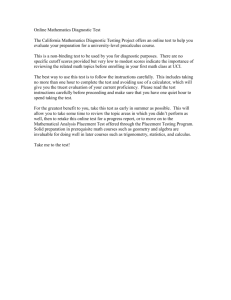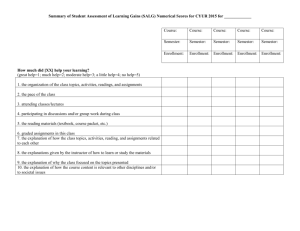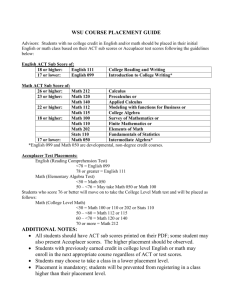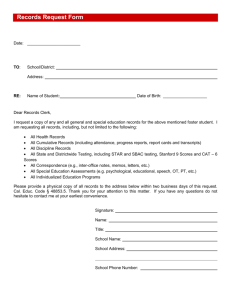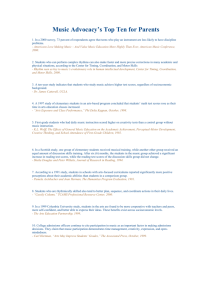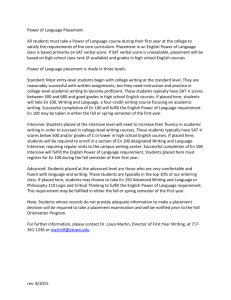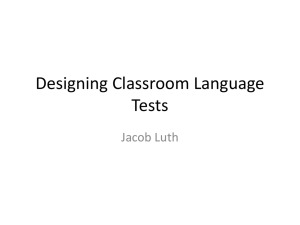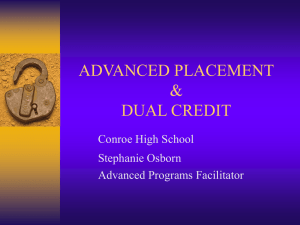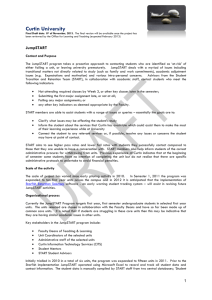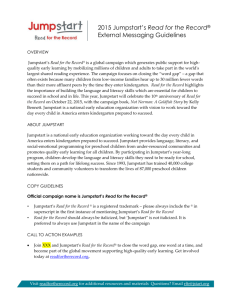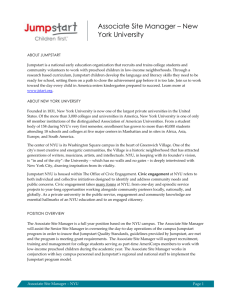1) - Chabot College
advertisement
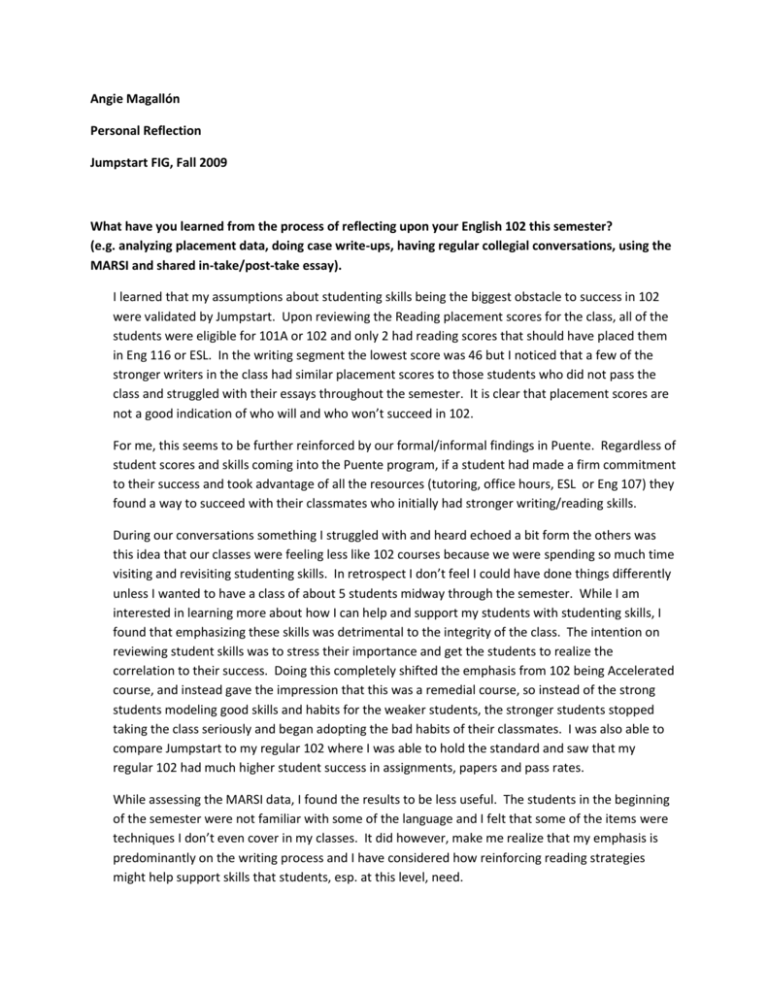
Angie Magallón Personal Reflection Jumpstart FIG, Fall 2009 What have you learned from the process of reflecting upon your English 102 this semester? (e.g. analyzing placement data, doing case write-ups, having regular collegial conversations, using the MARSI and shared in-take/post-take essay). I learned that my assumptions about studenting skills being the biggest obstacle to success in 102 were validated by Jumpstart. Upon reviewing the Reading placement scores for the class, all of the students were eligible for 101A or 102 and only 2 had reading scores that should have placed them in Eng 116 or ESL. In the writing segment the lowest score was 46 but I noticed that a few of the stronger writers in the class had similar placement scores to those students who did not pass the class and struggled with their essays throughout the semester. It is clear that placement scores are not a good indication of who will and who won’t succeed in 102. For me, this seems to be further reinforced by our formal/informal findings in Puente. Regardless of student scores and skills coming into the Puente program, if a student had made a firm commitment to their success and took advantage of all the resources (tutoring, office hours, ESL or Eng 107) they found a way to succeed with their classmates who initially had stronger writing/reading skills. During our conversations something I struggled with and heard echoed a bit form the others was this idea that our classes were feeling less like 102 courses because we were spending so much time visiting and revisiting studenting skills. In retrospect I don’t feel I could have done things differently unless I wanted to have a class of about 5 students midway through the semester. While I am interested in learning more about how I can help and support my students with studenting skills, I found that emphasizing these skills was detrimental to the integrity of the class. The intention on reviewing student skills was to stress their importance and get the students to realize the correlation to their success. Doing this completely shifted the emphasis from 102 being Accelerated course, and instead gave the impression that this was a remedial course, so instead of the strong students modeling good skills and habits for the weaker students, the stronger students stopped taking the class seriously and began adopting the bad habits of their classmates. I was also able to compare Jumpstart to my regular 102 where I was able to hold the standard and saw that my regular 102 had much higher student success in assignments, papers and pass rates. While assessing the MARSI data, I found the results to be less useful. The students in the beginning of the semester were not familiar with some of the language and I felt that some of the items were techniques I don’t even cover in my classes. It did however, make me realize that my emphasis is predominantly on the writing process and I have considered how reinforcing reading strategies might help support skills that students, esp. at this level, need. 2. What are the implications of this reflection for your own practice as a teacher? Have you made any changes to your classroom as a result of the work? Are you planning any changes for future semesters? One thing I am considering incorporating more into my classes are reading strategies. I tend to go over the basics such as annotating, pre reading, summarizing, responses etc, but I don’t really assess these skills with the same frequency and formality that I do with writing. While the MARSI was not something I found especially useful in terms of identifying particular student needs or trends, I did think that discussing the MARSI scores with the students at the end of the semester, after they had practiced some of those techniques, created an opportunity for students to reflect on their reading habits. It was also a way for me to reflect on the techniques I had incorporated regularly and those I did not. 3. Based upon our work in the Jumpstart FIG, are there issues you think the department should consider (e.g. re: curriculum, pedagogy)? Also, are you ok with the results from your individual section being shared? Are there issues you think the larger college (e.g. Basic Skills Committee) should consider I would like to see the Placement test revisited. It seems to me that it is not a good measure or indication of a student’s ability to succeed in any course unless they score extremely high or low which seems to be rare. If students in 102 are succeeding at a higher rate it may be because students with strong studenting skills are more likely to seek out these courses. They may have low to medium scores, but as was evidenced by our Jumpstart conversations, low writing and reading skills were not the biggest obstacle to success—preparedness, self awareness and buy in were. Another area to consider would be counseling both academic and crisis counseling. Students still seem to have little awareness about the differences between 101A/101B and 102. The only factor they consider is the fact that one is two semesters and the other is one. If we could find a way to more clearly articulate the difference in curriculum and the skills needed to succeed, we might see that students do a much better job of placing themselves in the appropriate course. Also, with everything our students are confronted with, it would be nice to have more support from the campus so that as instructors we could have a place to refer students we know are dealing with crisis but don’t have the money or resources to get the help they need. I’d also like to see more focus put on providing instructors resources for more community building esp. in the basic skills courses. Having more resources for field trips, group activities, events might help helps with student buy in. It also allows the instructor and students to get out of the classroom and into “real life” where there are more opportunities to bridge life and the classroom together instead of focusing solely on classroom strategies that don’t necessarily address the areas of motivation, buy in, etc.

